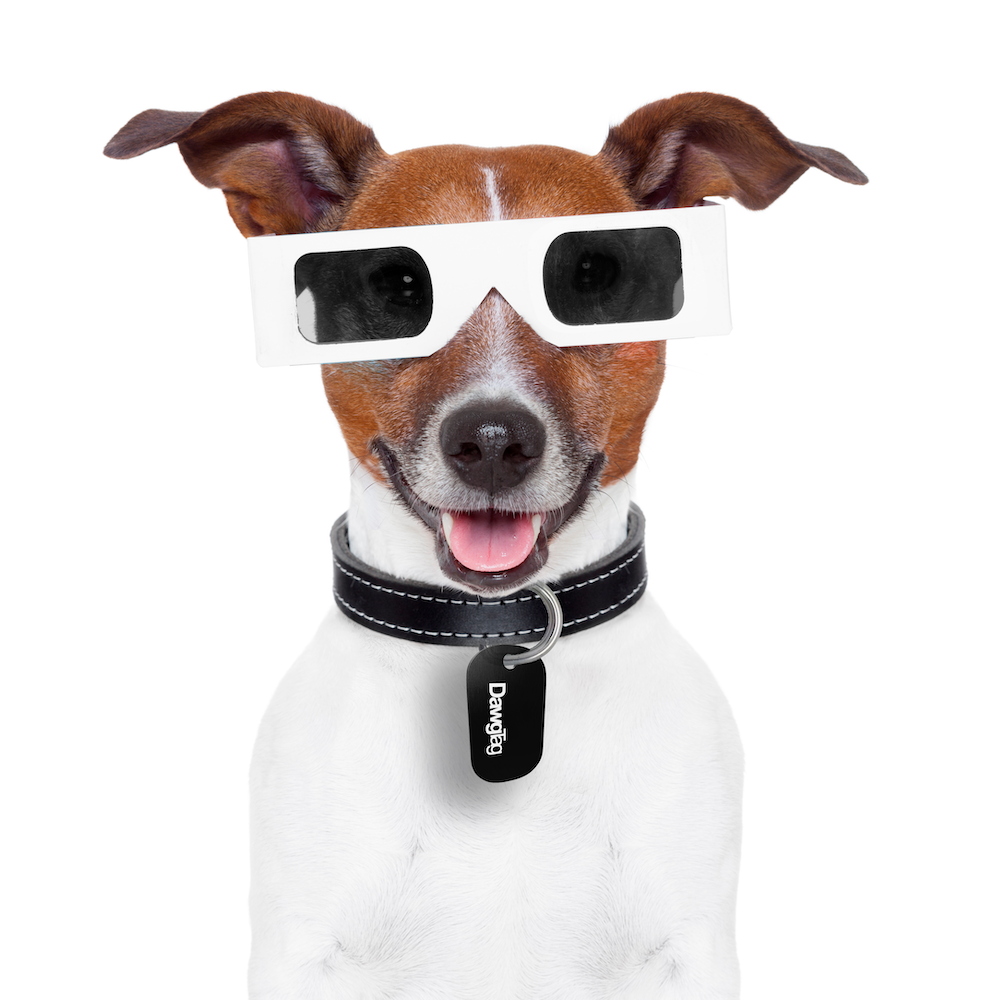This Monday's solar eclipse is set to be a memorable celestial event. While you might have your viewing glasses ready, here's how to ensure your four-legged friend enjoys the day safely.
We've compiled a tailored guide, complete with do's and don'ts, plus tips on weather and geographical considerations, to make this day enjoyable for both you and your pooch.
Animals DO React to Solar Eclipses!
When the day turns unexpectedly into night, the animal kingdom reacts in ways that have fascinated and puzzled humans for centuries.
The sudden darkness of a solar eclipse can trigger intriguing behaviors across a broad spectrum of species, dogs included.
But why does this happen, and what are some of the most peculiar behaviors observed? Let's explore.
Why Animals React to Solar Eclipses
Animals rely heavily on the natural light cycle to dictate their daily activities—hunting, mating, sleeping, and so on.
A solar eclipse disrupts this cycle abruptly, leading to confusion and sometimes alarm.
This disruption is sensed not just visually but through a sudden drop in temperature and changes in the atmospheric pressure, signaling to wildlife that something is amiss.
Odd Behaviors Observed in Animals During Eclipses
- Dogs and Domestic Animals: Dogs may show signs of anxiety or confusion, barking at the disappearing sun or whining due to the unexpected change. Domestic animals might return home or seek their owners for comfort, displaying a heightened need for security.
- Chickens: Perhaps one of the most commonly reported behaviors is that of chickens retreating to their coops, tricked into thinking it's time to roost as the sky darkens during an eclipse. Post-eclipse, they emerge, bewildered but ready to continue their day.
- Spiders: Spiders have been observed to dismantle their webs during an eclipse, an activity typically reserved for the end of the day. This suggests that they are reacting to the light changes as if night were falling, only to rebuild them once the light returns.
- Birds: Many bird species fall silent as the eclipse reaches totality, with nocturnal birds sometimes beginning their nighttime routines. The sudden silence from the usually daytime chorus is a stark reminder of the eclipse's impact on nature.
- Dolphins and Whales: Aquatic mammals such as dolphins and whales have been noted to surface more during an eclipse, suggesting a disruption in their normal navigation or behavior patterns possibly linked to the changes in light and temperature.
Understanding and Preparing for Your Pet’s Reaction
Knowing that animals, including our pets, can react unpredictably to the phenomenon of a solar eclipse allows us to prepare better.
For dog owners, this means ensuring a safe, calm environment and being present to offer reassurance. It also provides a unique opportunity to observe our pets’ behaviors, adding anecdotal notes to the wide array of animal reactions documented by eclipse watchers and scientists alike.
Don’ts for Eclipse Day
- Don’t Leave Your Dog Outside Unattended: The sudden change in daylight can disorient your dog. Keep them indoors or on a leash if you must be outside.
- Don’t Ignore Signs of Anxiety: The eclipse can affect animals differently. Watch for signs of distress in your dog and keep them comforted and distracted.
- Don’t Forget About Post-Eclipse: After the eclipse, your dog might still feel uneasy. Continue to offer reassurance and treats until they’re back to their usual self.
Do’s for Enjoying the Eclipse with Your Dog
- Monitor the Weather: Depending on where you are, the weather can greatly impact your eclipse experience. A cloudy day might make the event less dramatic, but still, keep your dog indoors as the ambiance will change.
- Stay Informed About Your Location: The eclipse’s visibility varies by location. Knowing the exact timing can help you prepare, especially if you’re in the path of totality where it’ll get notably darker.
- Keep Them Identified: Ensure your dog’s DawgTag is securely fastened and updated with your current contact information. Unexpected events are less worrisome when your dog has their ID. You can probably guess what tag we suggest :)
Weather and Geographical Considerations
- For Cloudy Climates: If you're in an area expecting cloud cover, create a cozy indoor viewing setup. Your dog can sense the atmosphere change, so keep the environment calm and comforting.
- For Clear Skies: In clear conditions, you might be tempted to step outside. If doing so, protect your dog’s eyes with pet-safe sunglasses and keep them on a leash for added security.
- Geographical Impact: If you’re in a prime viewing area, remember that the sudden darkness can be startling. Whether you're in the city or a rural area, staying indoors with your dog is advisable during the peak of the eclipse.
Monday's eclipse is a chance to experience the wonders of the cosmos, and with these do's and don’ts, you and your dog can safely enjoy the spectacle - because it'll be a few dog years before it comes around again!
DISCLAIMER: We've done our research, but we're not scientists. Put safety first and use common sense (as in, during the eclipse don't look directly at it and keep your pets indoors).

















































